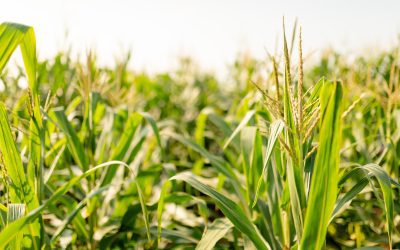Effective March 6, 2017, U.S. EPA finalized federal rule changes for the certification and training of pesticide applicators. These changes, which apply to anyone who uses Restricted Use Pesticides (RUPs), will require state pesticide regulatory agencies to make changes to state rules as well. State requirements must be equivalent or comparable to federal requirements.
Like most other states, Indiana’s current certification and training rules will require some adjustments to meet the new federal standards. The state regulatory agency, the Office of the Indiana State Chemist (OISC) and the state pesticide policy board, the Indiana Pesticide Review Board (IPRB) must address the following:
• Demonstrate state authority to assess civil and criminal penalties for pesticide violations.
• Establish a minimum age for certified applicators.
• Require specialized certifications for people using specific application methods (fumigation and aerial).
• Expand RUP sales and application recordkeeping requirements.
The OISC and IPRB also must restrict purchase and use of RUPs to only certified applicators or significantly expand enforceable rules for supervision of noncertified applicators to include the following:
• Detailed annual training for all noncertified applicators.
• Standards for trainers qualified to deliver the annual training. • Daily inspection of each piece of application equipment and personal protective equipment.
• Site-specific and date-specific written instructions for each application site.
• Record keeping for each of the supervision requirements.
• Compliance inspection scheme by OISC for each of the supervision requirements.
Fortunately, both the minimum age and the penalty requirements have already been addressed in Indiana through pesticide law amendments in 2020 and 2021. Last year the law was changed to restrict certification to those 18 years of age and older.
In the 2021 legislative session, the civil penalty provisions in the law were amended to reflect the following:
• Penalty schedule for private applicators (farmers) and all other regulated applicators or businesses have been made the same.
• Escalating penalties for first, second and third violations within a five-year period have been eliminated.
• The concept of higher penalties for violations involving adverse effects, RUPs vs. General Use Pesticides (GUPs), knowing vs. unknowing, intentional vs. unintentional, and fraudulent acts have been incorporated.
• Written warning vs. $250 penalty for first minor violation has been mandated. • $500 and $1,000 penalties are reserved for more serious violations.
• Up to 60 percent penalty mitigation provisions for $250 and $500 penalties involving cooperation, corrective actions, and victim compensation have been added.
• Misuse of a GUP with no adverse effect will result in warning or $250 penalty.
• Misuse of a GUP with an adverse effect will result in $500 penalty.
• Misuse of an RUP with no adverse effect will result in a $500 penalty.
• Misuse of an RUP with an adverse effect will result in a $1,000 penalty.
In summary, Indiana has a good start on making the state regulatory requirements comparable to the federal requirements, but there is still more work to do. Currently, OISC is supporting a proposal that will require all RUP users to be certified, rather than creating a complex and detailed supervision rule.
This position is bolstered by recent EPA product registration decisions that require RUPs such as dicamba, paraquat and fumigants all be applied by certified applicators only, with no provisions for supervision of noncertified applicators. This product registration trend for RUPs, coupled with the desire to allow a much more flexible supervision rule for licensed commercial users of GUPs, is driving the rulemaking drafting efforts at this point.
The Indiana Pesticide Review Board will be deliberating this and other pesticide rule revision proposals at their next meeting, scheduled for Aug. 10. Proposals, as they are drafted will be posted with meeting materials at www.oisc.purdue.edu/pesticide/iprb.html
Questions or comments prior to that meeting may be directed to IPRB Secretary Dave Scott at scottde@purdue.edu.



